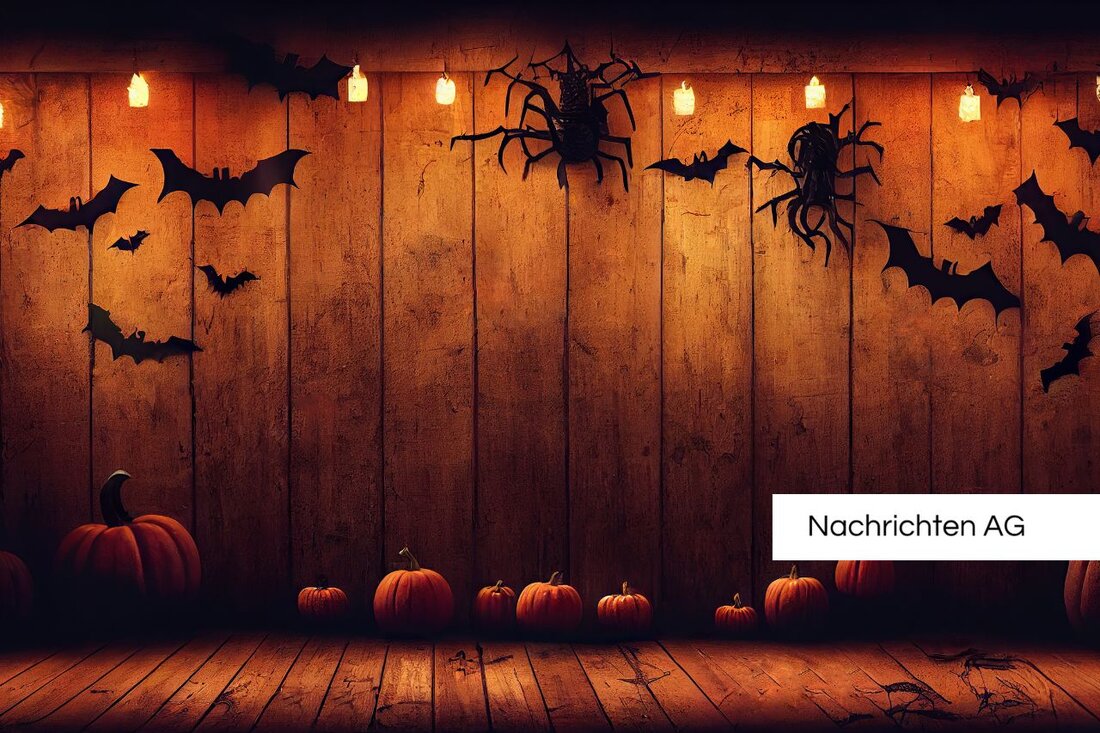Halloween alarm: Freak Circus and 3D horror in Duisburg!
Find out why Halloween is polarizing in Germany: Sven Wagner organizes a spooky event - a look at traditions and criticism.

Halloween alarm: Freak Circus and 3D horror in Duisburg!
It echoes through the streets again - the time of ghosts and scary nights is approaching. While some people enjoy Halloween to the fullest and look forward to the night of October 31st with extravagant costumes and scary events, others view the festival skeptically. Sven Wagner from Duisburg has come up with something very special for this year: his Halloween house has the motto “Freak Circus” and awaits visitors with an eerie tour through a scary maze, which also includes 3D glasses. The plant mechanic has made a name for himself in recent years by choosing a new, spooky theme every year - from “Insane Hospital” to “Holmes Hotel”. A high number of 653 tickets had already been reserved on Friday, which shows that interest is unbroken! Radio Cologne reports that ...
But not everyone is so enthusiastic about the Halloween hysteria. Critics warn of an excessive influence of American traditions that could endanger German culture. Halloween was hardly known in Germany, especially in the 70s and 80s. At that time, October 31st was primarily a day of the Reformation and the churches were critical of the festival. This attitude has now changed; after all, the German Bishops' Conference has no official opinion on Halloween. Professor Manfred Becker-Huberti, an experienced customs researcher, sees the development as positive: “Customs are dynamic,” he says and speaks of the opportunity to deal with the topic of death and the deceased.
The interplay between Halloween and Día de los Muertos
When we talk about death and commemoration, we cannot overlook a similar tradition: Día de los Muertos. On November 1st, many Hispanic households begin celebrating this day, which is dedicated to honoring deceased loved ones. The origins of Día de los Muertos date back to pre-Columbian traditions fused with Catholic customs, cementing a connection between the past and present. These celebrations are anything but sad – they are colorful and lively. Altars at home are often decorated with marigolds, candles and colorful sugar skulls. Blogs.loc.gov reports on the traditions of Día de los Muertos.
In contrast to Halloween, which is often celebrated as a fixed event with spooky elements, Día de los Muertos focuses on the memory of the deceased. Well-known customs include baking “pan de muerto” and sharing memories of the deceased in a convivial atmosphere. In this country, these two traditions could not be more different, but they still fit into a common framework of commemoration and celebration.
Where is society?
The debate about Halloween and similar customs raises the question of which values and traditions we as a society want to preserve. A quarter of annual candy sales in the United States occur during the Halloween season. While Halloween is celebrated on the eve of All Saints' Day and has its origins in ancient Celtic harvest festivals, many grapple with the question of cultural identity. Bibleinfo.com highlights the spiritual aspects of Halloween.
Overall, it turns out that Halloween is accompanied by both enthusiasm and skepticism. What for some is a dazzling celebration that offers scope for creativity and fun, is rejected by others as inappropriate American influence. One thing is certain, however: Halloween is not a static custom, but a reflection of our constantly changing society.

 Suche
Suche
 Mein Konto
Mein Konto